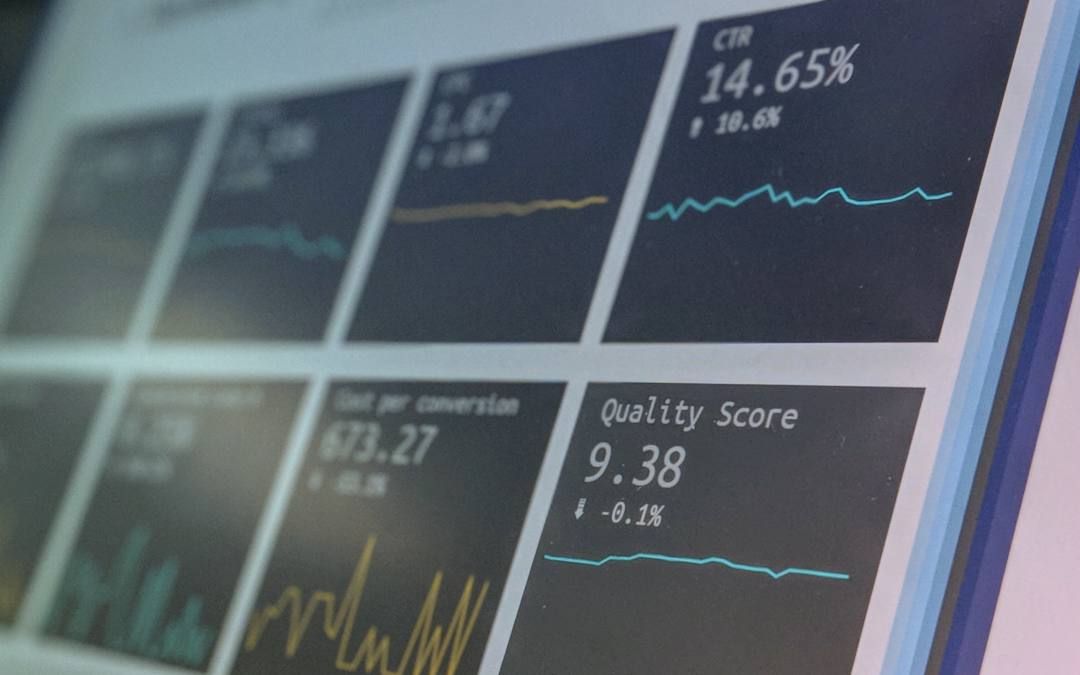Online advertising has rapidly evolved over the years, and one strategy that has gained popularity and become indispensable in the world of digital marketing is PPC Intelligence (Pay Per Click). In this article, we will explain what PPC intelligence is, why it is important to outperform the competition, and the key differences between PPC Intelligence and other marketing strategies. We will also discuss keyword research and how it plays a fundamental role in PPC Intelligence.
What is PPC Intelligence?
PPC Intelligence refers to the use of data and information to make informed and strategic decisions in pay-per-click advertising campaigns. This strategy combines technology, data analysis, and market knowledge to optimise the effectiveness of paid ads. By utilising PPC Intelligence, companies can improve their results, increase their brand visibility, and maximise their return on investment (ROI).
Importance of PPC Intelligence for Outperforming the Competition
In a highly competitive digital environment, PPC Intelligence plays a crucial role in helping businesses stand out among their competitors. By understanding and analysing data related to pay-per-click advertising campaigns, companies can gain valuable insights into consumer behaviour, market trends, and competitor strategies.
La Inteligencia PPC permite a las empresas adaptar sus estrategias publicitarias en tiempo real, lo que les da una ventaja competitiva significativa. Al monitorear y ajustar continuamente las campañas de PPC, las empresas pueden optimizar campañas ppc para aprovechar al máximo su presupuesto publicitario y dirigirse a audiencias específicas de manera más efectiva. Esto les permite generar más tráfico cualificado, aumentar las conversiones y alcanzar sus objetivos de marketing de manera más eficiente.
Differences between PPC Intelligence and other Marketing Strategies
PPC Intelligence differs from other marketing strategies in several key aspects. Unlike traditional marketing, which often involves a broader and more generalised approach, PPC Intelligence focuses on reaching specific audiences and generating measurable results.
Compared to search engine optimisation (SEO), where organic results can take time to show, PPC Intelligence offers immediate results. Paid ads are immediately displayed in search results and on advertising platforms, enabling companies to generate traffic and visibility instantly.
In addition, PPC Intelligence allows for greater control and customisation of advertising campaigns. Companies can set daily budgets, specific times to display ads, segment audiences by geographical location, interests, and demographics, giving them a higher degree of precision in their advertising strategy.
Keyword Research
Keyword research is a fundamental part of PPC Intelligence. By understanding which keywords are relevant to their business and their audience, companies can optimise their PPC campaigns and increase the likelihood of reaching the right users.
The Importance of Keyword Research in PPC Intelligence
Keyword research provides valuable information on how users search for products, services, or information related to a particular business. By identifying the most relevant and popular keywords in their industry, businesses can create specific and personalised ads that will be shown to users when they perform related searches.
Keyword research also helps to understand the level of competition associated with each keyword. By assessing the competition, businesses can select less competitive but still relevant keywords, which can lead to lower cost per click and higher efficiency in advertising investment.
Tools for Conducting Effective Keyword Research
Existen varias herramientas PPC disponibles que son fundamentales para realizar una investigación de palabras clave efectiva. Estas herramientas proporcionan datos sobre el volumen de búsqueda, la competencia y las palabras clave relacionadas, lo que permite a las empresas tomar decisiones informadas en su estrategia de Inteligencia PPC. Algunas de las herramientas populares para la investigación de palabras clave incluyen Google Keyword Planner, SEMrush, Ahrefs y Moz Keyword Explorer. Estas herramientas ofrecen una variedad de funciones y datos que ayudan a las empresas a descubrir nuevas oportunidades de palabras clave y optimizar su estrategia de PPC.
Identify Relevant Keywords for Your Business
When conducting keyword research, it is essential to identify the most relevant keywords for your business and your audience. This involves understanding the market niche you are targeting, knowing your target audience, and assessing which keywords are most likely to generate positive results for your business.
It’s important to note that relevant keywords can vary depending on the industry and the company’s objectives. Therefore, it’s crucial to conduct thorough research and use keyword analysis tools to identify the most suitable keywords for your business.
In summary, PPC Intelligence is a powerful strategy that uses data and insights to optimise pay-per-click advertising campaigns. Keyword research plays a fundamental role in PPC Intelligence, as it helps businesses identify relevant keywords and maximise the effectiveness of their advertising campaigns. By understanding what PPC Intelligence is, its importance in competition, and how it differs from other marketing strategies, businesses can make the most of this strategy to achieve outstanding results and outperform the competition.
Competitive Analysis
El análisis competitivo en la inteligencia PPC es un proceso fundamental para comprender el entorno en el que te encuentras y obtener una ventaja sobre tus competidores. Este análisis incluye una monitorización de competidores efectiva, que te permite identificar no solo a tus rivales directos sino también aquellos que dominan en los resultados de búsqueda. Veamos cómo realizar un análisis competitivo paso a paso:
How to Conduct a Competitive Analysis in PPC Intelligence
The first step in conducting an effective competitive analysis is to identify your direct competitors. Examine the market and find those competing for the same keywords and target audience as you. Use tools like SEMrush or Ahrefs to gain valuable information about your competitors, such as their active ads, keyword strategies, and overall performance.
In addition to analysing your direct competitors, it is also important to investigate those who occupy the top spots in search results. These competitors may not be direct, but their presence in the SERPs (search engine results pages) indicates they are doing something right. Analyse their approach, creativity, and key messages to gain ideas you can apply to your own strategy.
If you also have an eCommerce, you will be able to use tools like Boardfy to perform a price analysis on your competitors.
Identifying the Strengths and Weaknesses of your Competitors
Once you have identified your competitors, it’s time to analyse their strengths and weaknesses. This will allow you to understand what they are doing well and where you can surpass them. Here are some key aspects to consider during the analysis:
- Keyword strategies: Examine the keywords your competitors use and how they integrate them into their ads. Identify those that generate better results for them and consider if you can leverage those keywords in your own strategy.
- Campaign structure and organisation: Analyse the structure and organisation of your competitors’ advertising campaigns. Observe how they group their ads and if they are using ad extensions to improve their visibility.
- Messages and value propositions: Study the key messages used in your competitors’ ads. What makes them stand out? How do they convey their value proposition? Examine whether you can offer something unique and compelling in your own ads.
- Landing pages: Analyse the landing pages your competitors direct their ad traffic to. Observe how they are designed, what elements stand out, and what actions they expect users to perform. Learn from their approaches and find ways to improve your own landing pages.
The Importance of Competitive Analysis
Proper competitive analysis is vital to understand your competitors and outpace them in the PPC strategy. This will allow you to:
- Identify opportunities and niches that you might not have previously considered.
- Learn from the best practices of your competitors and adapt these into your own strategy.
- Constantly optimise your approach based on changes in the PPC landscape and actions taken by your competitors.
Creating Persuasive Ads
Once you have conducted thorough competitive analysis, it’s time to use this information to create persuasive and appealing ads that grab your audience’s attention. Key elements to consider include:
- Headlines that stand out: Choose a catchy headline that immediately attracts the user’s attention. Use relevant keywords and highlight your unique value proposition.
- Concise description: Focus on the benefits and solutions you offer in the description. Keep the text concise and use persuasive language to motivate the user to click.
- Clear call to action: Include a clear and compelling call to action (CTA) that invites the user to take the desired action, whether that’s buying a product, downloading a resource, or signing up on your website.
Writing Engaging Headlines and Descriptions
To write engaging headlines and descriptions, consider the following tips:
- Know your audience: Understanding who you are targeting will help you adapt your tone and writing style. What language does your audience use? What are their problems or desires? Tailor your message to resonate with them.
- Highlight benefits and solutions: Emphasise the benefits and solutions that your product or service offers. How can you enhance the lives of your customers? Communicate how your offering can meet their needs in a clear and compelling way.
- Use relevant keywords: Incorporate relevant keywords into your headlines and descriptions to boost the relevance and visibility of your ads. This will also help attract users interested in your products or services.
Strategic Use of Keywords in Your Ads
Strategically using keywords in your ads is key to boosting their effectiveness. Here are some tips:
- Research relevant keywords: Use keyword research tools to identify the most relevant keywords for your business. Consider both high-search volume keywords and more niche, specific ones.
- Incorporate keywords into your ads: Once you’ve identified your target keywords, include them naturally in your headlines and descriptions. This will help increase relevance and attract interested users.
- Test and optimise: Don’t settle for a single version of your ads. Conduct A/B testing to try different approaches and determine which keywords and messages yield the best results.
Automate your product prices
For e-commerce businesses and online shops that want to optimise their Google Shopping expenses, specific tools can help:
- Boardfy: Boardfy is a powerful tool that helps retailers optimise their Google Shopping expenses. It provides detailed information about competitor prices, profit margin analysis, inventory tracking, and other important metrics. With Boardfy, retail businesses can adjust their pricing strategies and budgets to maximise return on investment thanks to dynamic pricing and feed optimisation.
- WordStream: WordStream is a comprehensive ad management tool that includes functionalities for optimising Google Shopping campaigns. It enables bid automation, keyword segmentation, and tracking of campaign performance. Additionally, it offers analysis tools and report generation to help retailers make informed decisions.
- SEMrush: Although not exclusively focused on Google Shopping, SEMrush is a comprehensive digital marketing tool that can also aid in expense optimisation. It provides competitive analysis, keyword research, traffic analysis, and much more. By using SEMrush, retailers can identify saving opportunities, enhance the effectiveness of their ads, and improve their overall marketing strategy.
Remember, PPC advertising requires ongoing optimisation and refinement. Always analyse your campaigns to identify areas of improvement, and test different strategies to find the most effective approach.
Landing Page Optimisation
Landing pages play a critical role in PPC strategy. They serve as the entry point for visitors, and their design and content can make the difference between a successful conversion and a missed opportunity. Here, we’ll discuss some best practices for optimising your landing page and improving its performance.
The Importance of Landing Pages in PPC Strategy
Landing pages are your business or product’s first impression. When a user clicks on your ad, they expect to find relevant and compelling information on the landing page. A well-designed and optimised landing page increases the chances of the visitor taking the desired action, whether that’s buying a product, filling out a form, or subscribing to a mailing list.
To maximise the impact of your landing pages, ensure they align with the ad they’re linked to. Use clear, straightforward messaging that highlights the benefits of your product or service. Maintain a clean, attractive design, with a clear structure and prominent calls to action.
Best Practices for Optimising Your Landing Page
Below, we present some best practices you can implement to optimise your landing page:
Keyword Research
Conduct thorough research of keywords relevant to your business. Use tools like Google Keyword Planner to identify the most relevant, high-search volume keywords. Incorporate these keywords naturally into the content of your landing page.
Relevant and Persuasive Content
The content on your landing page should be relevant and persuasive. Highlight the benefits of your product or service and how it can solve the customer’s problems or needs. Use testimonials, reviews, and concrete data to back up your claims.
Attractive and Responsive Design
Ensure that your landing page has an attractive design and is mobile-friendly. Increasingly, people are accessing the internet from their smartphones and tablets, so it’s essential that your page adapts to different screen sizes.
Clear Calls to Action (CTA)
Your calls to action should be clear and persuasive. Use imperative verbs and create a sense of urgency to motivate the user to take the desired action. For example, “Buy Now” or “Sign Up Today”.
A/B Testing and Continuous Landing Page Optimisation
Landing page optimisation is a continuous process. Conducting A/B testing allows you to try out different elements on your page, such as the headline, text, images, or design, and determine which is most effective in terms of conversions.
Make gradual changes and measure the results. Keep a record of your tests and adjustments to identify what works best for your target audience. Remember that user preferences and behaviours can change over time, so it’s important to stay up-to-date and adapt your landing page accordingly.
Tracking and Analysing Results
Once you’ve implemented your PPC campaigns and optimised your landing pages, it’s crucial to track and analyse the results. This will allow you to evaluate your campaigns’ performance and make adjustments to improve their efficacy.
How to Track and Analyse Results in PPC Strategy
There are various tools and metrics you can use to track and analyse your PPC strategy results. Some of the most common include:
Google Analytics
This tool provides you with detailed information about your website traffic, conversions, user behaviour and much more. Use Google Analytics data to evaluate your landing pages’ performance and identify areas for improvement.
Conversions
Clearly define what actions you consider as conversions, whether it’s a sale, a subscription, or a completed form. Track these conversions to measure your PPC campaigns’ success.
Cost per Conversion (CPC)
CPC tells you how much you’re paying on average for each completed conversion. It’s important to monitor this cost and ensure it’s within your goals and budget.
Key Metrics to Evaluate Your PPC Campaigns’ Performance
Here, we present some key metrics you should consider when evaluating your PPC campaigns’ performance:
CTR (Click-Through Rate)
CTR shows the proportion of people who click on your ad relative to the number of times it’s displayed. A high CTR indicates that your ad is relevant and attractive to users.
Conversion Rate
This metric shows the percentage of visitors who complete the desired action, be it a purchase, a subscription, or any other defined conversion. A high conversion rate is an indicator of your landing page’s effectiveness and your overall PPC strategy.
ROI (Return on Investment)
ROI shows you the profitability of your PPC campaigns by comparing the revenue generated to the costs incurred. It’s important to calculate and monitor ROI to ensure you’re getting a positive return on your advertising investment.
Using Data to Improve and Adjust Your PPC Strategy
Once you’ve collected and analysed your PPC campaigns’ data, you can identify areas for improvement and make strategic adjustments. Here are some actions you can take based on the data obtained:
Keyword Optimisation
Identify the keywords that generate a high CTR and conversion rate and focus your efforts on them. Eliminate or adjust keywords that are not generating the expected results.
Landing Page Improvement
Use tracking and analysis data to identify weak points in your landing page. Make changes to the content, design, or calls to action to increase the conversion rate.
Segmentation Adjustment
If your campaigns aren’t reaching the right target audience, review and adjust the segmentation parameters. Direct your ads to individuals more likely to be interested in your offering.
Remember that optimisation and result analysis are ongoing processes. Keep an eye on your metrics, conduct regular testing and adjustments to ensure the long-term success of your PPC campaigns.
Conclusions
In conclusion, PPC Intelligence is a highly effective marketing strategy that can provide significant results for businesses. Throughout this article, we’ve explored key concepts and best practices related to PPC Intelligence. Here’s a summary of what we’ve learned:
- PPC Intelligence stands out from other marketing strategies due to its highly segmented and results-oriented approach. It enables businesses to display specific ads to highly relevant audiences, increasing the chances of generating conversions.
- Identifying relevant keywords is critical for a successful PPC Intelligence strategy. Using keyword research tools, such as Google Keyword Planner and SEMrush, businesses can discover the most relevant and competitive keywords in their industry.
- Conducting competitive analysis is essential to understanding the bigger picture and gaining an edge in PPC Intelligence. By assessing competitors’ strategies and tactics, businesses can identify opportunities and improve their own campaigns.
- The essentials of a successful PPC ad include an attention-grabbing title, a compelling description, relevant keywords and a clear call to action. The relevance and quality of the ad content are key to attracting users’ attention and generating clicks.
- Optimising the landing page is crucial for maximising the conversion of clicks into desired actions. By providing a smooth, relevant and compelling user experience on the landing page, businesses can increase the conversion rate and maximise the return on investment.
- A/B testing is a powerful tool in the PPC strategy. By comparing two variants of an element, such as the ad title or landing page design, businesses can determine which version generates better results and make data-based improvements.
- By following key metrics, such as CTR (Click-Through Rate), conversion rate and ROI (Return on Investment), businesses can evaluate the performance of their PPC Intelligence campaigns. This data provides valuable insights for continuous optimisation and improvement of the strategy.
- Using the data obtained through PPC Intelligence is key to improving the strategy over time. Through data analysis and trend tracking, businesses can identify areas for improvement and adjust their approach for better results.
- Tracking and analysing results are critical aspects of PPC Intelligence. By closely monitoring campaign performance, businesses can make informed decisions and make real-time adjustments to maximise impact and optimise spend.
In summary, PPC Intelligence offers businesses the ability to reach relevant audiences and generate tangible results. By applying best practices and leveraging available tools, businesses can optimise their PPC Intelligence campaigns and achieve significant growth in their business.
Frequently Asked Questions (FAQs)
- What is the difference between PPC Intelligence and other marketing strategies?
- PPC Intelligence focuses on highly segmented paid ads, while other marketing strategies may include tactics such as organic SEO or content marketing.
- How can I identify relevant keywords for my business?
- You can use keyword research tools, like Google Keyword Planner, SEMrush, or Ahrefs, to discover relevant and competitive keywords in your industry.
- What tools can I use for efficient keyword research?
- Some popular tools include Google Keyword Planner, SEMrush, Ahrefs, and Moz Keyword Explorer.
- How can I conduct a competitive analysis in PPC Intelligence?
- You can analyse your competitors’ strategies and tactics using competitive analysis tools, like SEMrush or Boardfy.
- What are the essentials of a successful PPC ad?
- Essentials include an eye-catching title, a compelling description, relevant keywords, and a clear call to action.
- How can I optimise my landing page for better results?
- You can optimise your landing page by providing a relevant, compelling, and user-friendly experience, ensuring it aligns with the ad and has a clear call to action.
- What is A/B testing and how can it help my PPC strategy?
- A/B testing involves comparing two variants of an element in your PPC strategy to determine which one yields better results, thus allowing you to make data-driven decisions.
- What are the key metrics I should follow in PPC Intelligence?
- Some key metrics include CTR (Click-Through Rate), conversion rate, and ROI (Return on Investment).
- How can I use the data obtained to improve my PPC strategy?
- You can use the data obtained to identify areas for improvement, make real-time adjustments, and optimise your strategy based on the outcomes.
- What is the importance of tracking and analysing results in PPC Intelligence?
- Tracking and analysing results allow you to evaluate your campaigns’ performance, make informed decisions, and make adjustments to maximise impact and optimise spend.
The fastest monitoring and dynamic pricing platform worldwide
Boardfy allows you to monitor your competitors or distributors, make automatic price changes, optimize your Google Shopping campaigns, and much more.
7-days free trial. No credit card required.








